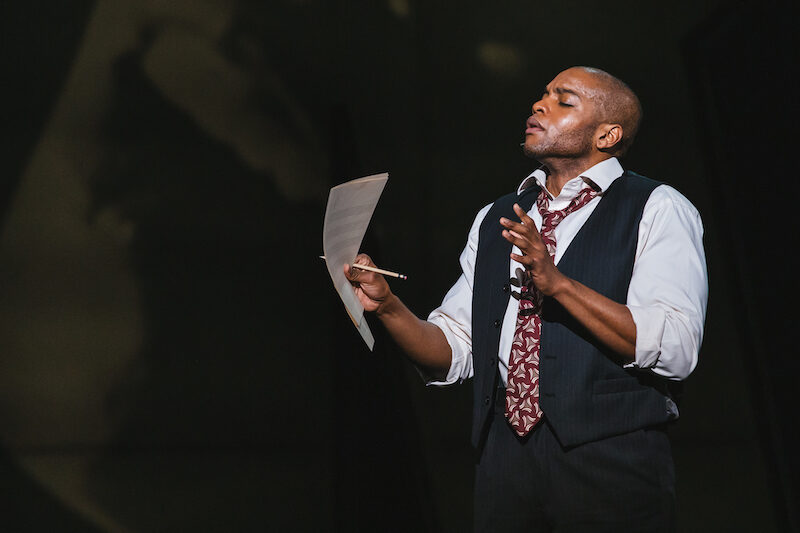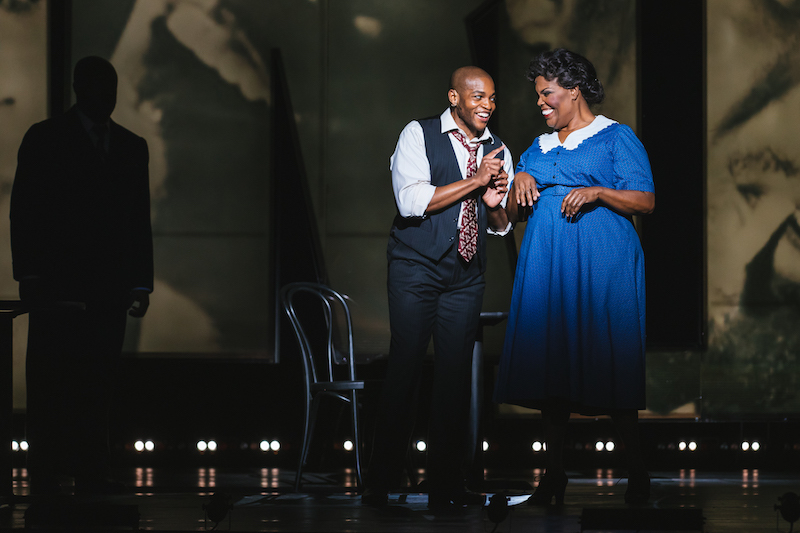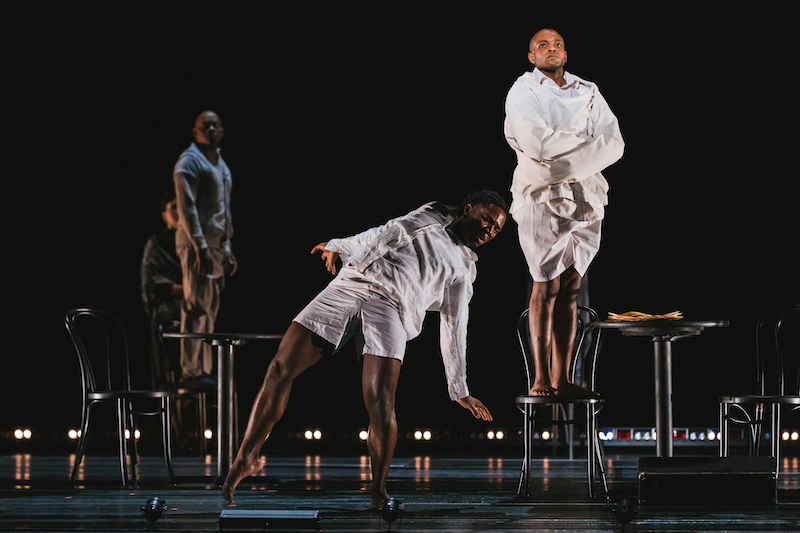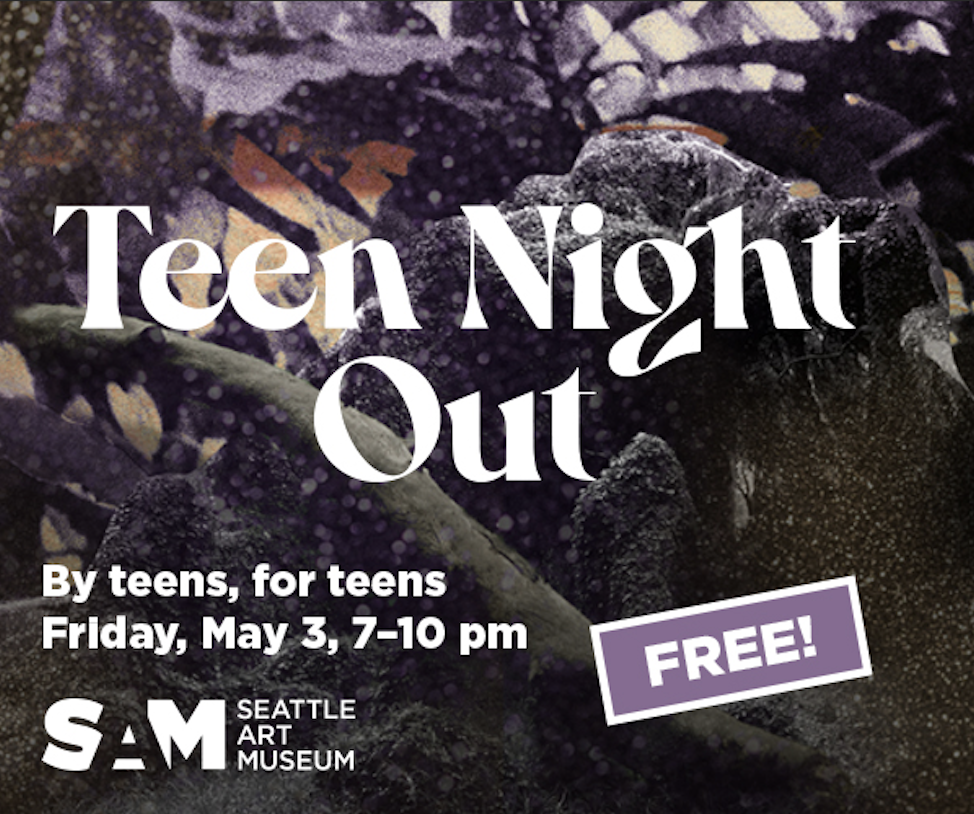Yardbird Sings A New Tune
Review of Charlie Parker's Yardbird at Seattle Opera.
Written by Teen Editor Kendall Kieras and edited by Press Corps Teaching Artist Ts Flock.

A flash of light, a sign reading “Birdland” descending and spanning the length of the stage, directly beneath, a lone man staring at his own corpse. These elements serve to transform 7:30 pm on a Wednesday to a midnight in the mid-1950s at Seattle Opera’s latest production, Charlie Parker’s Yardbird, inspired by the life (and afterlife) of jazz icon Charlie Parker. The opera begins at the moment of Parker’s death from a heroin overdose...in the bed of his socialite lover at a segregated hotel. As a spirit, he suddenly finds himself back at Birdland bar, where he had been banned years before for drunken conduct, despite the bar being named after him.
The libretto, written by Bridgette A. Wimberly, follows Parker as he reconciles with his life, and attempts to write a classical symphony as a ghost. Yardbird is the next step in a long line of biographical productions attempting to revive legendary figures, following The (R)evolution of Steve Jobs, performed last year at the Seattle Opera.

Yardbird promises to capture the jazz icon’s influential legacy through opera, and the use of a medium so often associated with whiteness as a vehicle for the struggles of a legendary black artist is at times a breathtaking combination. Moments such as Charlie’s mother mourning the struggles of raising a black child are extraordinary when told in operatic song. Saxophone does not feature much in the score by Daniel Schnyder, but Parker (played by Frederick Ballentine) uses his voice instead to evoke the flow of jazz sax. The mix of musical modes, the 1930s setting, and nods to black culture feel innovative and refreshing.
Charlie Parker, the titular figure of the piece, lived a fascinating real life story. The promise of a retrospective based around his relationships, told in a posthumous medium, certainly seems enticing. However, it doesn’t do the work to determine exactly what kind of story it wants to tell. Is it the tragedy of a tortured artist? A mourning for art stifled under oppression? A cautionary tale of the dangers of addiction? The piece seems unsure. Memorable moments seem to blend together, piecemeal, as scenes meant to be hard-hitting come rapid fire, falling just short of connection. Musically, the score is incredibly performed, but slow and too cautious of embracing the story’s jazz roots. A swirl of characters within Parker’s life come in and out, not different enough, musically or characteristically, to make a true impression. His relationships with the women in his life feel overwhelmingly archetypal; the overbearing mother, the jilted wife, the rich white mistress.

Where the piece truly thrives is when connecting Parker’s story to black resistance as a whole. In a scene where Parker is committed to a mental institution due to his heroin addiction, dancer Mikhail Calliste performs a ballet solo choreographed by legendary black choreographer Donald Byrd, in which he seems to be breaking out of the straightjackets the rest of the ensemble are trapped in. As the play ends, Charlie sings lines from Paul Lawrence Dunbar’s Sympathy. These moments create touchstones for the audience to relate to the piece as a tragedy of a generation of black artists whose innovation and humanity were stolen by the evils of segregation and racism. They capture what is ambitious and beautiful about the piece, perfectly blending two seemingly parallel cultural mediums.
Yardbird ultimately comes together as a story of art as survival. While this message comes together sometimes timidly, the key impression remains. “This bird is free,” Charlie says as he walks towards the unknown in the last scene, and while the audience member knows that freedom is still to be fought for, the line gives Parker what he had been searching for throughout the opera: a moment of peace.
Charlie Parker's Yardbird was presented at Seattle Opera February 22 - March 7, 2020. For event information see here
Lead photo caption: Frederick Ballentine (Charlie Parker) in Charlie Parker’s Yardbird at Seattle Opera. Photo by Sunny Martini.
This review was written as part of mentorship program where members of the Teen Editorial Staff receive one-on-one mentorship by Press Corps Teaching Artists and professional critics. The Teen Editorial Staff is made up of 6 teens who lead the TeenTix Newsroom and curate the review portion of the TeenTix blog. More information about the Teen Editorial Staff can be found HERE.
The TeenTix Press Corps promotes critical thinking, communication, and information literacy through criticism and journalism practice for teens. For more information about the Press Corps program see HERE.


